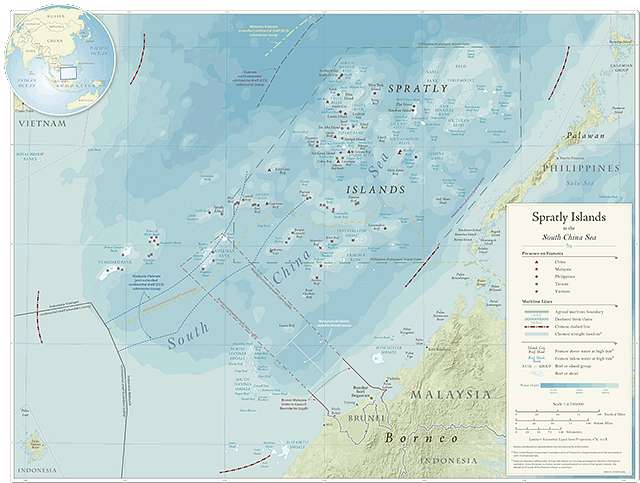Spratly Islands Dispute: 5 Undeniable Threats to Global Trade
Businesses operating in the South China Sea need to be aware of the potential risks and challenges posed by the Spratly Islands dispute.

The Spratly Islands are a group of islands and reefs in the South China Sea that are claimed by China, the Philippines, Taiwan, Malaysia, Vietnam, and Brunei. The dispute over the islands has been ongoing for decades, and it has the potential to cause significant threat to businesses in nearby countries.
1. The Potential for Conflict
One of the main concerns for businesses in the region is the potential for conflict. If tensions between the claimants escalate, there is a risk of military action, which could disrupt shipping and trade. This could have a negative impact on businesses that rely on the South China Sea for transportation of goods or for access to resources.
For example, in 2012, a standoff between China and the Philippines over the Scarborough Shoal led to a temporary closure of the area to fishing and shipping. This had a negative impact on businesses in both countries, as they were unable to access the area’s resources.
2. Legal Uncertainty
Another concern for businesses is the uncertainty surrounding the legal status of the Spratly Islands. The United Nations Convention on the Law of the Sea (UNCLOS) does not explicitly recognize any of the claimants’ claims to the islands, which means that there is no clear legal framework for businesses to operate in the area. This uncertainty could make it difficult for businesses to obtain permits or licenses, and it could also make them vulnerable to legal challenges.
For example, in 2016, the Permanent Court of Arbitration (PCA) ruled that China’s claims to the Spratly Islands were not supported by international law. However, China has refused to recognize the PCA’s ruling, which has created further uncertainty for businesses operating in the area.
3. Environmental Damage
n addition to the potential for conflict and legal uncertainty, the dispute over the Spratly Islands could also have a negative impact on the environment. The islands are home to a variety of marine life, and they are also a major source of fishing for local communities. If the dispute escalates, there is a risk of pollution or damage to the environment, which could have a negative impact on businesses that rely on the region’s natural resources.
For example, in 2014, China began dredging activities in the Spratly Islands, which raised concerns about the potential for environmental damage. The dredging could have disturbed the seabed, which could have a negative impact on marine life.
4. Increased Security Costs
Businesses that operate in the South China Sea may need to increase their security costs in order to protect themselves from potential risks, such as piracy or sabotage. This could add to the cost of doing business in the region.
For example, in 2017, a Chinese fishing boat rammed a Vietnamese oil rig in the South China Sea. This incident highlighted the potential for violence in the region, and it led to increased security costs for businesses operating in the area.
5. Reputational Risk
Businesses that are seen as being associated with the Spratly Islands dispute could face reputational risk. This could lead to consumer boycotts or other forms of protest, which could damage the business’s bottom line.
For example, in 2016, the Philippines’ Department of Foreign Affairs warned businesses against operating in the Spratly Islands. The department said that businesses that operate in the area could be seen as being complicit in China’s illegal activities.
The dispute over the Spratly Islands is a complex issue with far-reaching implications for businesses in the region. Businesses that operate in the South China Sea need to be aware of the potential risks and challenges, and they should take steps to mitigate these risks.
Here are some tips for businesses that are operating in the South China Sea:
Be aware of the potential for conflict: Businesses should monitor the situation closely and be prepared to take action if tensions escalate.
Understand the legal uncertainty. Businesses should seek legal advice to ensure that they are operating in compliance with international law.
Be aware of the environmental risks.Businesses should take steps to minimize their impact on the environment.
Be prepared to increase security costs.Businesses should factor in the potential for increased security costs when making business decisions.
Manage reputational risk.Businesses should be aware of the potential for reputational damage and take steps to mitigate this risk.
By following these tips, businesses can help to reduce the risks associated with the Spratly Islands dispute and protect their interests in the region.
Explore Curionomics

